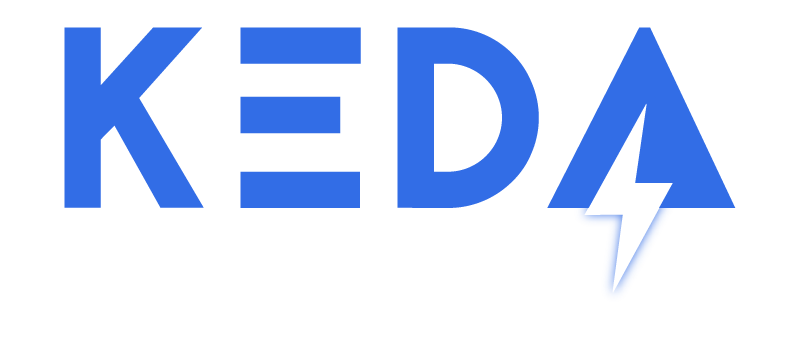Kubernetes-based Event Driven Autoscaling
KEDA allows for fine-grained autoscaling (including to/from zero) for event driven Kubernetes workloads. KEDA serves as a Kubernetes Metrics Server and allows users to define autoscaling rules using a dedicated Kubernetes custom resource definition.
KEDA can run on both the cloud and the edge, integrates natively with Kubernetes components such as the Horizontal Pod Autoscaler, and has no external dependencies.
We are a Cloud Native Computing Foundation (CNCF) incubation project.
Table of contents
- Getting started
- Documentation
- Community
- Adopters - Become a listed KEDA user!
- Governance & Policies
- Roadmap
- Releases
- Contributing
Getting started
- QuickStart - RabbitMQ and Go
- QuickStart - Azure Functions and Queues
- QuickStart - Azure Functions and Kafka on Openshift 4
- QuickStart - Azure Storage Queue with ScaledJob
You can find several samples for various event sources here.
Deploying KEDA
There are many ways to deploy KEDA including Helm, Operator Hub and YAML files.
Documentation
Interested to learn more? Head over to keda.sh.
Community
If interested in contributing or participating in the direction of KEDA, you can join our community meetings! Learn more about them on our website.
Just want to learn or chat about KEDA? Feel free to join the conversation in #KEDA on the Kubernetes Slack!
Adopters - Become a listed KEDA user!
We are always happy to list users who run KEDA in production, learn more about it here.
Governance & Policies
You can learn about the governance of KEDA here.
Roadmap
We use GitHub issues to build our backlog, a complete overview of all open items and our planning.
Learn more about our roadmap here.
Releases
You can find the latest releases here.
Contributing
You can find contributing guide here.
Building & deploying locally
Learn how to build & deploy KEDA locally here.



